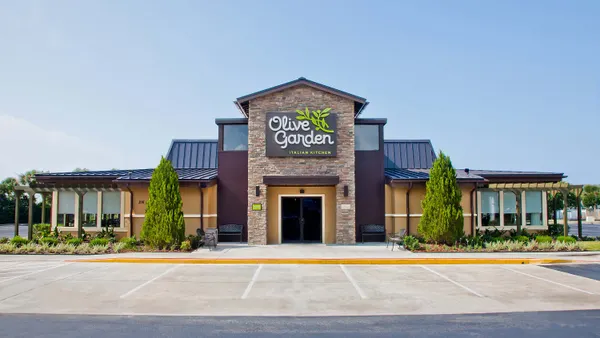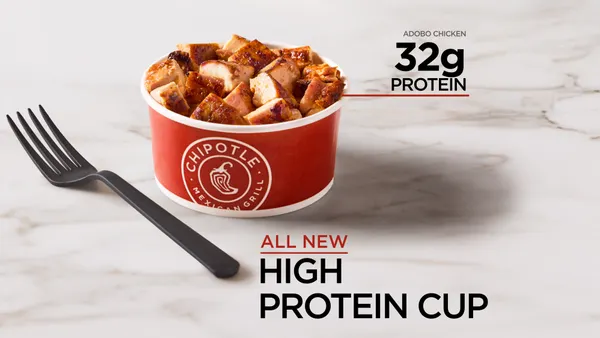Dive Brief:
- VeganBurg, a vegan fast-casual chain that started in Singapore in 2010, aims to open 300 franchised restaurants in California, reported Fast Casual. VeganBurg CEO Alex Tan stated in a press release that Southern California's "vegan and cosmopolitan culture" and support for sustainable brands make it a good fit for the company.
- The vegan burger joint, which incorporates Asian flavors into its plant-based dishes, moved its headquarters to San Francisco after opening its first U.S. store there in 2015. It currently runs four restaurants in Singapore and recently announced expansion plans for Indonesia and Southeast Asia.
- According to its website, the company offers a 100% plant-based menu and GMO-free patty, with burger options like Avocado Beetroot, Creamy Shrooms and Tangy Tartar.
Dive Insight:
Long an afterthought of restaurants of all styles and sizes, "going meat-free" has become a priority as the demand for plant-based foods grows. VeganBurg's decision to expand into California now could be a smart move to build a meaningful foothold in the market ahead of more established chains and up-and-coming direct competitors. In 2017 alone, U.S. consumers spent almost $700 million on meat substitutes, up 25% from 2012, and Nielsen found that annual plant-based food sales now exceed $3.5 billion.
Entirely vegan restaurants remain rare in comparison to traditional meat-centric chains, but vegetable-forward concepts promoting more nutritious items and a sustainable ethos, especially in the Mediterranean segment, have gained traction in the U.S. One of the largest vegan chains, Veggie Grill now has 30-some locations, while By Chloe runs about a dozen.
Traditional chains have caught on, too. Panera promotes Meatless Mondays, Del Taco serves Beyond Meat "chorizo" crumbles and White Castle sells Impossible Burgers at about 100 of its 385 locations. Most chains test these options before making formal decisions to offer at every location, but it's apparent they're successful. TGI Friday's, for instance, made the Beyond Burger a permanent menu item in January, while Umami Burger noted that 20% of burger sales are actually Impossible Burgers. Even KFC is testing a vegetarian "fried chicken" in the U.K.
By offering beef alternatives, many restaurants like VeganBurg also look to reduce their environmental footprint. As Tan noted in the press release, beef production is a leading cause of exacerbated greenhouse gases. "Now is the best time to turn over a new leaf, dodge the beef, and switch to a plant-based burger," he said. The impact could be huge if big corporations follow suit. McDonald's, the nation’s largest beef purchaser for example, buys 1 billion pounds each year. A 20% swap to plant-based alternatives, as happened at Umami Burger, could reduce beef consumption by 200 million pounds.
While plant-focused diets have long been followed throughout the world, Americans nearly top the list of meat consumption in the world, Business Insider reported. Plant-based meat sales increased 23% since last year, but still only account for 1% of total retail meat sales, per the Good Food Institute. Plant-based milk, by comparison, now comprises 13% of milk sales.
But the switch for restaurants isn't so simple since plant-based foods don't always equal healthier, which many consumers want as well. Processed plant-based foods may not necessarily be lower in calories, sodium or saturated fat. At Amy’s Drive Thru, a vegetarian fast-food restaurant spun off a retail line of frozen vegetarian meals, the signature veggie burger packs 770 calories and 1,420 milligrams of sodium, but it also provides more fiber and protein than a McDonald's Big Mac and its 563 calories, according to CNN. Like VeganBurg, Amy's eyes an eventual national presence. With the ability to induce mass purchasing, quick-service could be the key to attuning U.S. consumers to all things plant-based.








